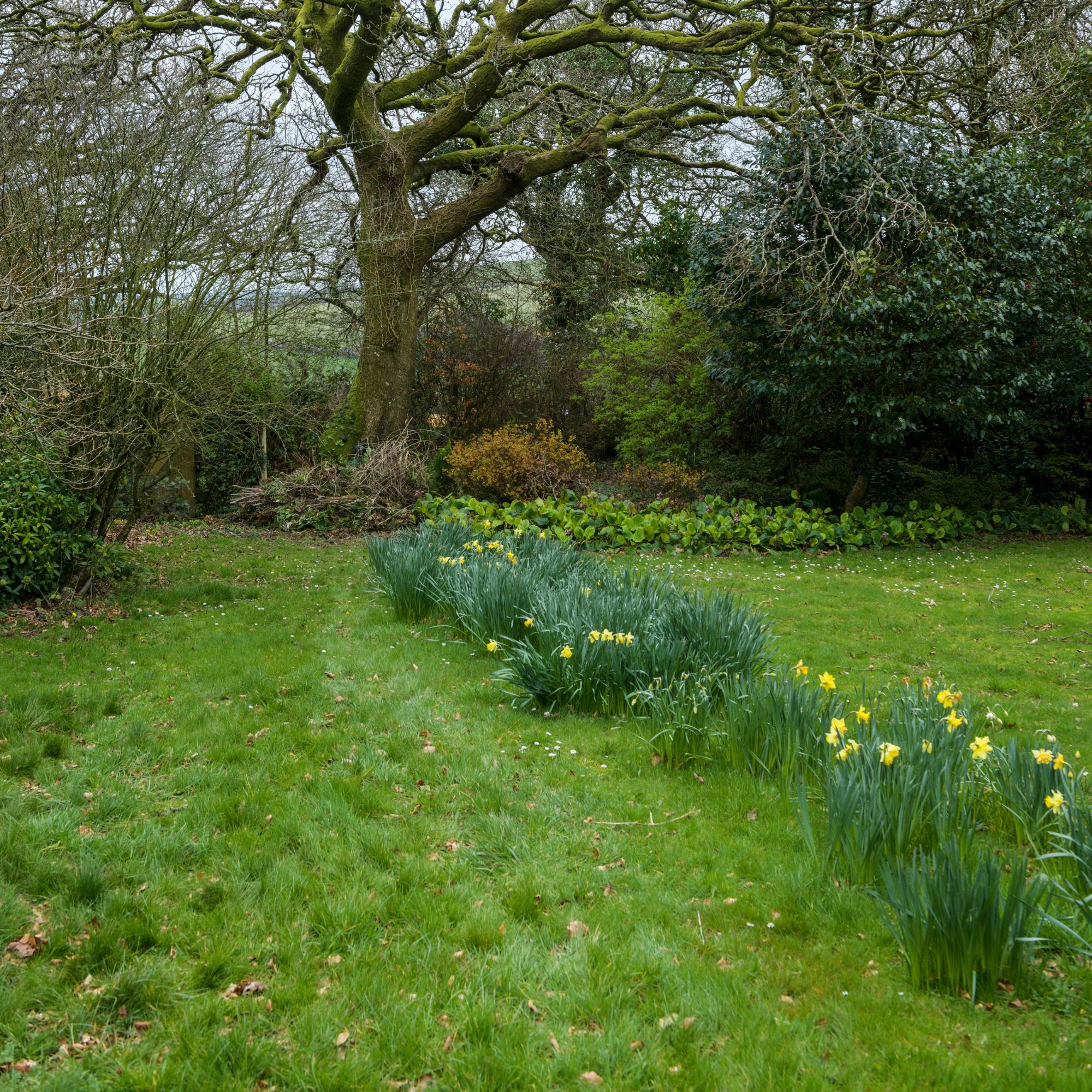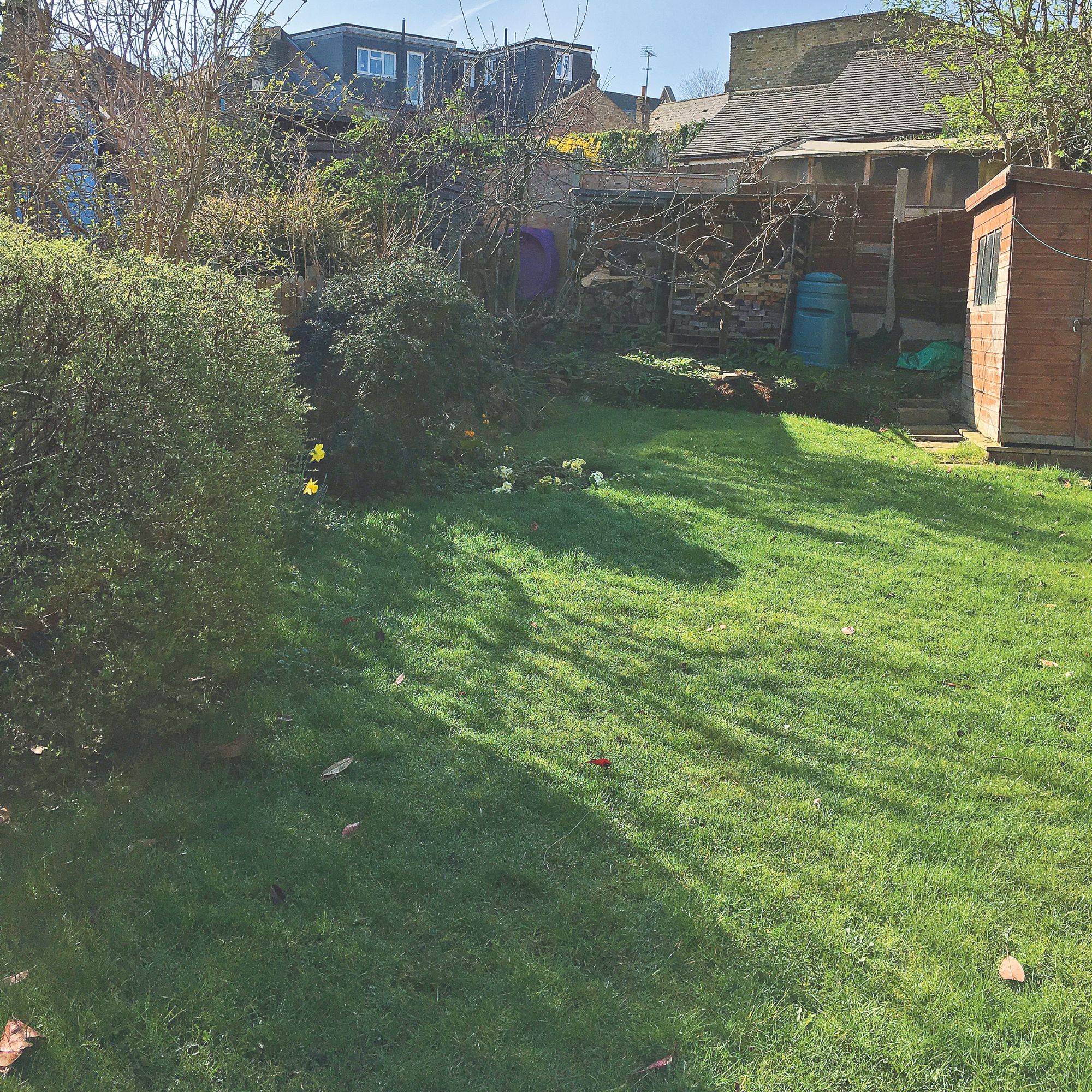
Much like the rest of the gardening guru's wisdom, we're mad about Monty Don's winter lawn mowing advice – and this season, he's encouraging us to keep our grass long.
Many of us wonder when to stop cutting grass for winter, but Monty Don is all about embracing a long lawn over the colder months. And while it might sound like one of the more out-there lawn ideas, there is a method behind Monty's apparent madness. We promise.
Monty Don's winter lawn mowing advice
When it comes to gardening experts, Monty Don's name is pretty high on the list of greats – and not least of all because he taught us how to take cuttings so brilliantly well.
So, when he tells us to do the horticultural equivalent of jump, we do tend to start bopping about the garden like Duracell bunnies. Metaphorically speaking, of course.

On this occasion, Monty has turned his attention to our picture-perfect lawns, which many of us have been struggling to keep trimmed as the seasons shift.
And, as it turns out, our struggle is futile; it's actually better, Monty says, to let your grass grow long this winter.
'Keep cutting the grass for as long as it keeps growing,' he muses in his popular gardening blog. 'However, it is better to have the grass too long than too short over the winter months.'

As ever, it seems Monty Don's winter lawn mowing advice is bang on the money.
Monty Don fans will definitely want to check out this book, which promises to give readers the basics they need to grow over 100 popular flowers, foods, shrubs, houseplants and more.
'I agree with Monty,' says Chris McIlroy, in-house lawn seed expert at The Grass People. 'Mowing your grass too short can leave it vulnerable to the cold weather.
'We advise gardeners to keep their grass around 2.3 to 3 inches tall during the winter months. This length provides enough surface area for photosynthesis while preventing snow mould and root damage from setting in.'
Morris Hankinson, director of Hopes Grove Nurseries, goes on to add that longer grass can actually act as a natural insulator for the soil beneath it.
'This insulation helps protect the roots of the grass from extreme temperature fluctuations, keeping them healthier during the colder months,' he says. 'And, as the grass blades break down, they return valuable organic matter to the soil, which improves soil health over time.'

Further explaining Monty's reasons for advising you to let your grass grow long this winter, Morris says that longer grass can also help suppress the growth of weeds.
'Dense, taller grass can shade out weed seeds and prevent them from establishing themselves in your lawn,' he says. 'And, the dense root system of tall grass holds soil in place and prevents it from washing away during heavy rain or snow.'

However, it's important that you don't leave your grass too long over the winter months – according to Chris from The Grass People, this can invite pests and diseases to your lawn.
And actually, some lawn experts are more in favour of mowing through the winter.
'Don’t stop mowing!' says Cheryl Harper from Greensleeves Lawn Care. 'In fact, not giving the grass a cut when it could do with one can actually cause undue damage to the lawn come spring.
'Have you ever noticed how after that first spring mow your grass starts to turn yellow and look listless, even if you do only take off the upper third? This is because it’s suddenly lost a great deal of nutrients contained within its blades. While your lawn will recover from this damage, it’s better to avoid it in the first place by engaging in an autumn and winter mowing regime.'

That doesn't mean you should cut your grass short, though – in fact, you can still follow Monty Don's winter lawn mowing advice if you do choose to continue mowing through the winter by raising the lawn mower blades a couple of settings. Just don't cut it too short.
That said, there's a good chance you won't have to mow your lawn during the winter in the first place.
'Although it doesn't stop completely, once the weather starts to drop in temperature – particularly below 10°C – your grass will only grow extremely slowly,' says Chris from The Grass People. So chances are, you won't need to get the lawn mower out again until you can start cutting grass after winter.
Lawn care essentials
If Monty's advice hasn't swayed you, give your lawn a trim with the Bosch AdvancedRotack 750. It tops our list of the best lawn mowers.
Control moss and give your lawn a little winter protection with Miracle-Gro's Evergreen Autumn Lawn Care.
FAQs
Why do gardeners have to mow the grass more often in summer than in winter?
It's all down to daylight hours and the weather. During the summer, the soil is much warmer, and grass blades spend a lot more time in the sun. This accelerates photosynthesis, causing the grass to grow a lot more quickly than it does in the cooler, darker winter months.
Should you mow your lawn in winter?
Advice around mowing in the winter varies, with some lawn experts suggesting you keep it up during the colder months. However, because grass growth slows to more or less of a halt during the winter, and because of the harsher weather conditions, most experts agree that you should leave it off until spring.
'During the winter, it's best not to mow at all (once the first frost hits),' agrees Morris. 'This will make your lawn far happier come springtime, as it won't be under so much stress.'
That's right, everyone: Monty Don's winter lawn mowing advice has practically given you permission to put your mower away and put your feet up for the next few months.
Time to grab a cup of hot chocolate and relax, we think...







